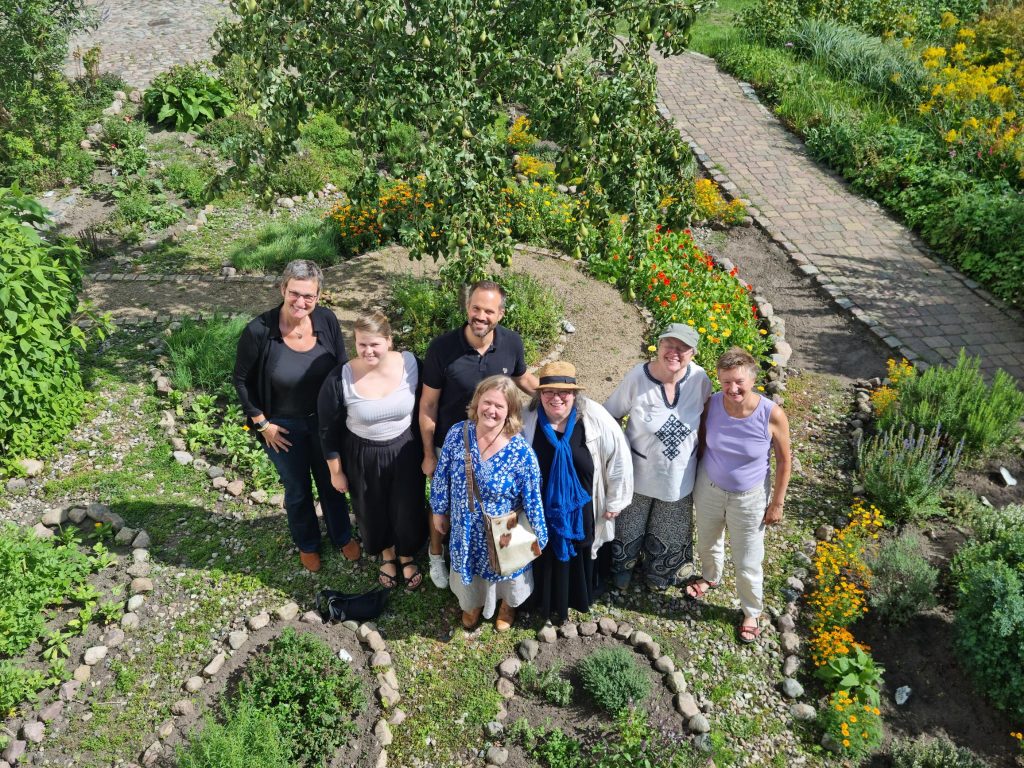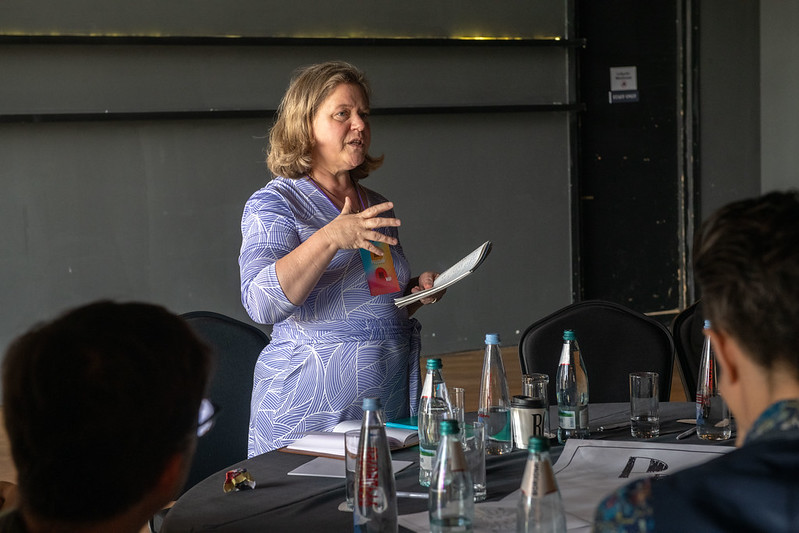“Justice is a Deep Value I Hold”: 5 Questions for Claudia Bollwinkel, Dreilinden
This interview is part of a series of stories to get to know some of the humans who are connected to DRF’s work . Claudia Bollwinkel is the Senior Program Advisor at Dreilinden, a private foundation that funds DRF.

All photos courtesy of Claudia Bollwinkel
- What is your personal mission? What gets you up in the morning?
Justice is a very deep value I hold. And I combine it with the notion of solidarity. Solidarity can be political, but it can also be spiritual because it’s the ability to walk in another person’s shoes, and to understand that all issues are interconnected. I try to live every day with justice and solidarity as practices.
- How do curiosity and learning play a role in your work?
When I went recently to the joint conference of Ariadne and the Human Rights Funders Network in Georgia, they had taps on the faucets that turn the opposite way of what I am used to, and I really loved that! One person commented that they open the wrong way, and that’s not how it is for me—it was just a different way. My job is all about learning and understanding more deeply the issues we try to support. I love when I’m challenged in my perceptions and understanding, especially in a new context. I am privileged to have so many opportunities to be in new contexts and to see how there are many options that are all good for how to approach something or how something works. There’s never a single right way to be.
- Why does funding with an intersectional lens matter, and how does it show up for Dreilinden?
The more I learn about social movements, the more I understand the separations that funders have introduced are artificial.
The silos we fund in—women’s rights, LGBTIQ rights, migrants’ right, digital security, environmental justice, and so on—they don’t exist in the real world, they all intersect.
For example, we are supporting Dalan Fund, which is the newly created mechanism in the CEECCNA region that funds intersectionally. The Fund’s codirector noted that a high percentage of the leaders are queer, which is something we know—there are a lot of queer leaders in all kinds of social movements, not just in the LGBTIQ space. The boxes that we as funders use create a sort of fragmentation within movements that are intrinsically organic.
As a foundation, we at Dreilinden have to find a balance because we have an LGBTIQ focus, and there’s not a lot of money going to that, specifically. So, we also don’t want to water down this direct and focused support. Intersectional funding within our portfolio is so important though. One of the questions we asked in our evaluation of Dreilinden’s work a few years ago is: are our grantees working at intersections? 79% said yes. When we ask that of grantees, we also need to embody it in our own grantmaking. The pandemic was a big learning moment for us deepening our understanding of intersectionality. We saw that the situation for people with multiple marginalized identities got so much worse so much faster than for the rest of the population. That’s when we started to fund sex worker rights, and then disability rights.

Claudia recognizes the importance of funding communities that lie in the margins who hold solutions to systemic problems.
- What do you find compelling about Disability Rights Fund’s approach to unleashing the power of disability rights movements?
When we first met, I became curious because the corners of the room where DRF staff were was where people were laughing the most. I thought: they have a spirit and I want to be part of it! DRF’s vibe is life affirming, joyous, and invites pleasure and connection. Beyond that energy, we find your community-led approach super important. There are people in charge who reflect the people you work with, so they really know what they are doing. DRF has an intersectional lens in all aspects of the work – and you’re also at the intersection of activism and grantmaking, which is a hard thing to do.
We need intermediaries who are activist led because you know what you’re doing, you have all the networks and relationships in place. And with more and more crises springing up, community-led funds are going to be even more important as they already have the infrastructure and relationships in place that are needed for any kind of response.
- What advice would you give to other funders who want to support movements more deeply and intentionally?
Fund the community-led funds. They have the contacts, the networks, they know what to do. They can move money to where it’s really needed. Intermediaries aren’t perfect—we know that in some cases there’s gatekeeping and power dynamics within movements. But still, from my perspective, we need them for the resource redistribution process we want to be part of.